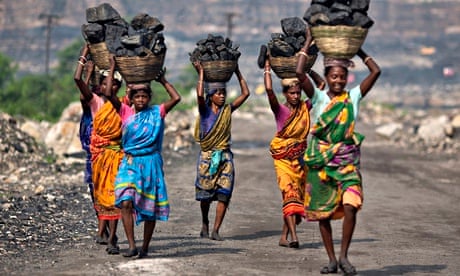A private member's bill to force the UK government to consider the impact of its overseas aid spending on reducing gender inequality is poised to become law after passing its third reading in the House of Lords on Tuesday.
The international development (gender equality) bill, proposed by the Conservative MP for Stone, Bill Cash, requires royal ascent before becoming law, which is considered a formality.
The legislation, which received cross-party support and was endorsed by the international development secretary, Justine Greening, will place a duty on the government to consider ways in which development and humanitarian funding will build gender equality in the countries receiving UK aid.
The new law is understood to be the first to place a commitment to reduce gender inequality on aid disbursements. Campaigners hope the UK legislation will encourage other donors to adopt similar measures.
The text of the private member's bill was drafted by Cash, with the help of NGOs including WaterAid, Plan, the Gender Rights and Equality Action Trust (Great), and VSO, and officials at the Department for International Development (DfID).
Tanya Barron, chief executive of Plan UK, said the bill was important because, globally, millions of girls and women "are disproportionately affected by poverty, injustice, violence and discrimination".
"I'm proud that the UK government continues to lead on girls' and women's rights. In ensuring that the gender impact of aid and development spend is legally considered, we now know that this can remain the case for years to come," she added. "This bill sends a clear message that the UK is determined to ensure that women and girls are not left behind in the drive to economic empowerment, universal education, and social and political progress."
Barbara Frost, chief executive of WaterAid, said addressing the needs of girls and women in aid work "is a huge step forward".
Mariella Frostrup, trustee of the Great initiative, said: "In the UK we are famously reticent about blowing our own trumpet, but by making gender equality a criterion in overseas development, the UK has taken a pioneering step towards ending the greatest human rights abuse of our age, that of gender inequality."
The bill received its first reading in the House of Commons in June, and moved to the Lords on 20 January. During its third reading in the Commons, Cash admitted he thought getting the legislation passed was a long shot.
Of the 20 MPs allowed to table their private members' bills each parliamentary session, the gender equality bill was listed number 18. It is unusual for any private members' bills to pass through parliament before the end of parliament, but those at the bottom of the list are considered particularly unlikely to make it through the two houses.
On Tuesday, Cash said: "When I asked the prime minister whether in putting this bill into effect, we will be establishing a statutory benchmark for other countries, the prime minister gave me 'an absolute yes'."







